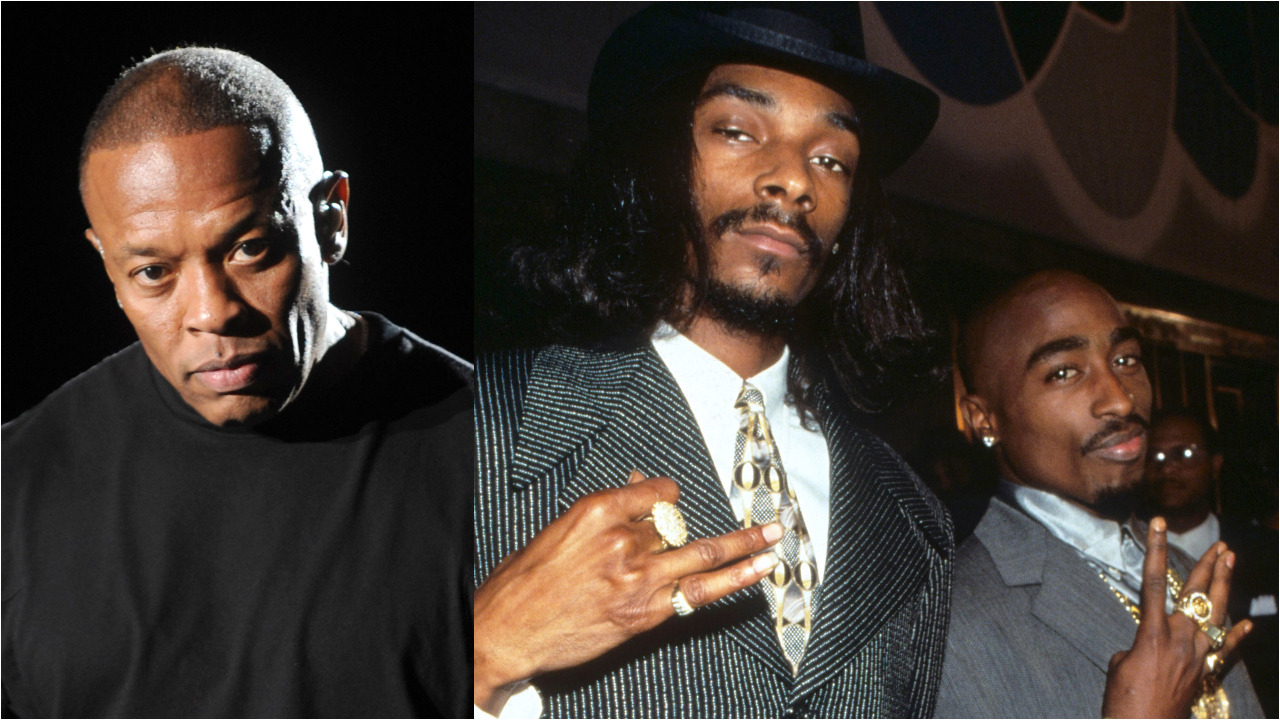
Despite the fact that it only released a relatively limited number of albums, Death Row Records, the label founded by Dr. Dre, Suge Knight, The D.O.C. and Dick Griffey in 1991, is one of the most iconic names in hip hop. Boasting one of the most instantly recognisable logos in the industry, the label earned a degree of notoriety due to wild tales of excess, violence and criminal activity in and out of the boardroom, but amid all the controversy and chaos, it delivered some of the most essential rap albums of the era. Here are five classic records that defined its tumultuous lifespan.

Dr. Dre – The Chronic (1992)
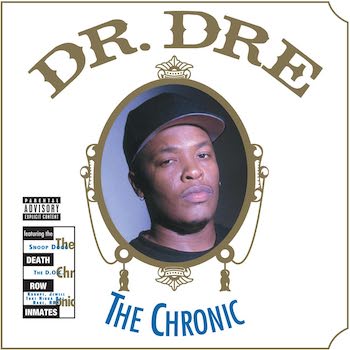
Death Row’s first album release ended up being one of the most important albums in the history of rap, with Dr. Dre’s solo debut representing a true fork in the road moment for pop culture. Without The Chronic taking underground gangsta rap, lacing it with the deep grooves of 70’s funk and a pure pop sheen production, and thereby perfecting the G-funk style, it’s hard to imagine hip hop would become the commercial behemoth it did in the album's aftermath. More than three decades down the line, The Chronic still sounds box-fresh, filled to the brim with the genuine threat and danger of street life in Compton, but told through irresistible, radio ready bangers like Nuthin’ But a “G” Thang, The Day the Niggaz Took Over and Let Me Ride. A legitimate landmark release.
Snoop Doggy Dogg – Doggystyle (1993)
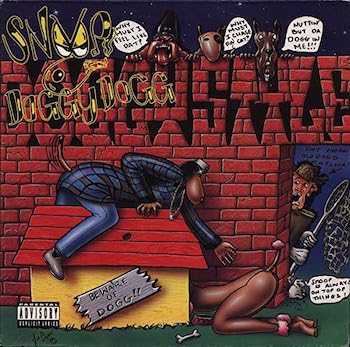
When The Chronic introduced G-funk to the masses, it also introduced the world to Snoop. If Dre was the mastermind of the G-funk era, Snoop was the personification of its excesses, and on his debut solo album he leaned into his weed smoking, 40-slurping, street pimp persona in the most outrageous way. Snoop’s lackadaisical drawl, Dre’s brilliantly funky production and the album's unapologetic stories of gang violence and “getting fucked up every day” caused plenty of pearl clutching from middle America, who claimed Snoop was glorifying the lifestyle. Perhaps there's some truth in that, for it's hard to argue that the sweet sounds of huge hits like Gin and Juice or Who Am I (What’s My Name) didn't make Snoop sound like the coolest person in the world. The album topped the US Billboard 200, and suddenly, much to the horror of white America, the gangsta lifestyle appeared aspirational.
Various Artists - Above the Rim: Original Soundtrack (1994)
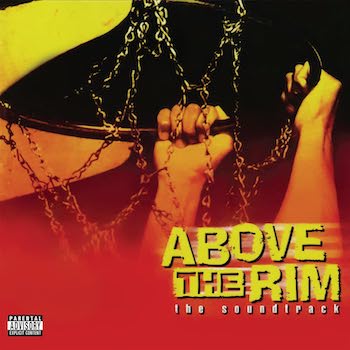
By the mid '90s, Death Row may have been painted in the mainstream as the scourge of polite society and a key factor in the decline of modern America, but that wasn’t stopping it from taking over. After the label's early successes, Hollywood wanted in on the action, and Death Row was enlisted to produce the soundtrack for Jeff Pollack’s 1994 basketball drama Above the Rim, which starred Marlon Wayans, Bernie Mac and Tupac Shakur.
Such was the momentum behind the label, that the album, featuring a mix of Death Row luminaries and R&B stars like SWV and H-Town, reached number 2 on the US Billboard 200, won the best soundtrack at 1995 Source Awards and, through its first single, gave us arguably THE definitive G-funk banger; Warren G and Nate Dogg’s immortal Regulate. It set up an extra string to the label’s bow, and their next two soundtrack albums, 1994’s Murder was the Case and 1997’s Gridlocked, both topped the US album charts.
2Pac – All Eyez on Me (1996)
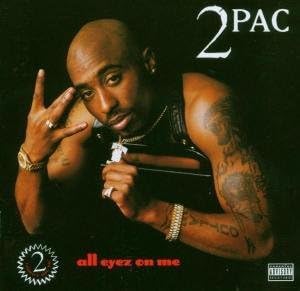
Although both Dre and Snoop were huge superstars, the discovery of Tupac Shakur was the moment Death Row found the voice of a generation. If G-funk mostly glamourised street life, without ever really attempting to critique it, Pac was more than happy to expose its ugly side, whilst also admitting he revelled in it. Agreeing to join the label after Suge Knight paid the incarcerated rapper’s $1.4 million bail, the final release of his too short lifetime was fourth album All Eyez on Me, a sprawling, vicious, unapologetic, violent double album. The irony of Tupac sounding more furious, fired up and defiant than ever on the likes of Only God Can Judge Me, Holla at Me and Heartz of Men is that within months of the release of All Eyez on Me’s he would be another victim of the lifestyle the album showcases in such extreme detail.
Snoop Dogg – BODR (2022)

After Dre departed Death Row in March 1996, the label spiraled and unraveled quickly; Tupac was murdered, Suge Knight was imprisoned, Jimmy Iovine’s Interscope dropped their distribution deal with the company, Snoop, Nate Dog and others left and in 2006 they filed for bankruptcy. Irrespective of your thoughts on their extra-curricular activity, it was sad to see such an iconic brand fall so far from grace. So, if you were a hip hop fan, the news that Snoop had acquired the name and was releasing his 19th solo album on the reborn label in 2022 was a rare feel-good story. BODR (Bacc on Death Row) is a decently enjoyable record from Snoop, but it’s here more for being the first Death Row release in 17 years. It’s doubtful the label will ever return to the heights of its glory years, but it being active in the modern era still feels like a win.







